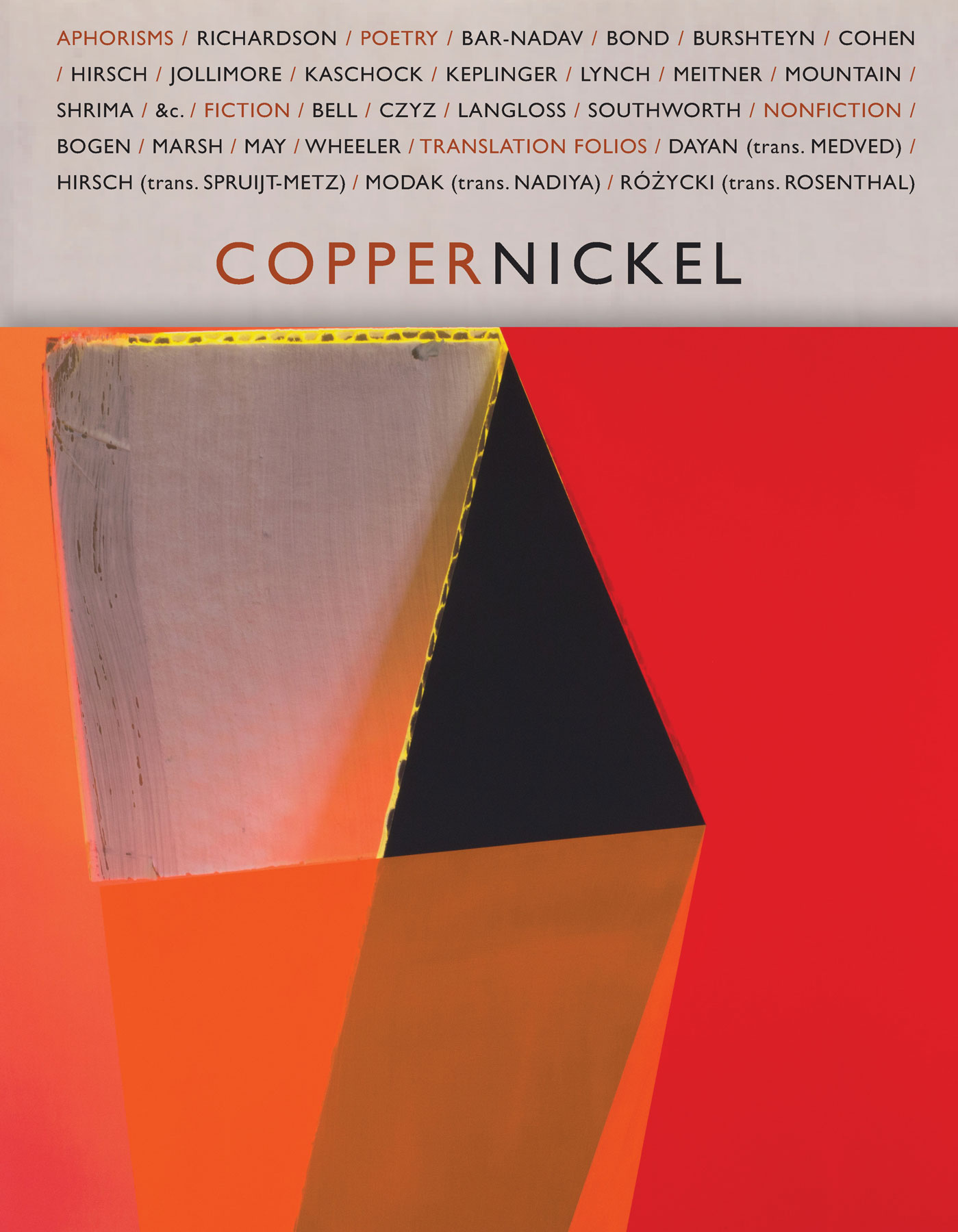I.
Josh found his mother crouched on the floor across the room from her suitcase—an open-mouthed beast in vinyl she’d received as a wedding gift in the 1960s. She’d never used it, and now it was making a messy meal of her blouses and medical devices. Heating pad for crumbling vertebrae, nebulizer for lungs.
“I’m not going,” she said over the rattling of her own body.
Josh repacked her. Lucas had called this a fool’s errand. Lucas and his clichés and his pessimism annoyed Josh. But maybe he was right. Josh took all the things out of the suitcase that his mother wouldn’t need: Ziploc bags containing photographs he’d published, acceptance letters from nursing schools she’d never attended, prayers on index cards. O my God, I am heartily sorry for having offended Thee. He removed his father’s last wallet—a scrap of paper with Josh’s old cell number inside. His dad had never dialed it, had only spoken to him in clipped sentences since Josh first brought Lucas home from Montauk. To think, he’d been excited to introduce them, giddy even. He’d had so much hope that his parents would love Lucas too.
Now he carefully folded each piece of clothing like his mother had taught him when she’d sent him off to college thirty years ago. Cross-country via Amtrak by himself.
“This is a lot of sweaters, Mom. Can you pick just one?”
His mother retreated into the hug of the drapes—which stood at attention, ready to fend off the dawn. Josh chose the sky-blue sweater, because his mother always looked happy in blue, even if she wasn’t. She rarely was. When the suitcase was ready, his mother refused to rise. He put his hands under her arms to help her to her feet, but she went boneless like a child. He scooped her up, and she grasped at the long hair of his beard.
“I’m doing this for you,” he said.
Carrying her to the car, he was surprised how light she was compared to her suitcase.
II.
The windshield wipers stopped working an hour from home. Josh got out of the car in a driving rain. He wished Lucas had come. Lucas was the one in their relationship who could repair what broke. Your mother doesn’t want me there, he’d said. She and Lucas had a lot in common—love of the evening news and black licorice and animals that others found ugly—but she still didn’t know it. Josh wondered if they should turn back. What was the point anymore?
Eventually, he got one wiper going. One was enough.
His mother checked her seatbelt, made sure the window was closed. She looked behind them as they got farther and farther from the Illinois border, from her flat town of single-story homes near the Caterpillar factory. He’d made a playlist of songs by decade he thought she might like, but the rain was so noisy they couldn’t hear unless he turned it up too loud. The feedback in her hearing aids was terrible. Instead, he told her about dipping his hand in the surf in Montauk—how much better that water was than any other water. It could change a person. He described the glaciers and deserts he’d photographed for work. The oyster Lucas had pulled from the coast of Chiloé and shucked for him with a key. If she was listening, he couldn’t tell. It had always been like that between them.
“You’re going to love the ocean,” he said when they stopped overnight in a roadside motel outside Harrisburg.
III.
It was late afternoon when they arrived to the end of Long Island. Josh steered the car head-on into the sand, setting the water before his mother like a painting on an easel. Pretty streaks of pink pierced the cloud-cover, but the water itself was a muddy blue. He wished it were bluer. He felt angry at the ocean for not looking its best at a time like this. When he’d met Lucas on this exact beach twenty years before, the water had been the kind of blue that makes a person fall in love.
Josh removed his mother’s shoes and rolled up her pants.
“You can’t half-fill a suitcase, Josh,” she said, smoothing a crease on her knee. “If you leave empty space, everything shifts around. The clothes get wrinkled.”
“You’re right. I’m sorry.”
The sand was hard for her to walk on, so he held her around the waist in case she stumbled. She did, but only once. Refusing the chair he unfolded for her, she walked down the gentle slope to the shore alone—her steps steadier on the packed, wet sand. When the cold blue touched her toes, she didn’t recoil the way most people do. She walked straight into the autumn waves until they crashed up to her shins, tugging her back and forth like a reed that had always been there, that already knew this life. His mother stayed planted in the water a long time, taking deep, salty breaths as the contents of the Atlantic rushed toward her and away from her, toward her and away. The litter and krill and shipwreck. Someone else’s memories. Her son’s memories. Josh concentrated on the swirls of sea foam at their feet so he wouldn’t cry. At dusk, his mother took a Ziploc from the pocket of her sweater, filled it with sea, and asked him to take her home.
“Lucas’s eyes are the color of that ocean,” was the only thing she said on the long drive west across Long Island.
—winner of the Editors’ Prize in prose for issue 30
